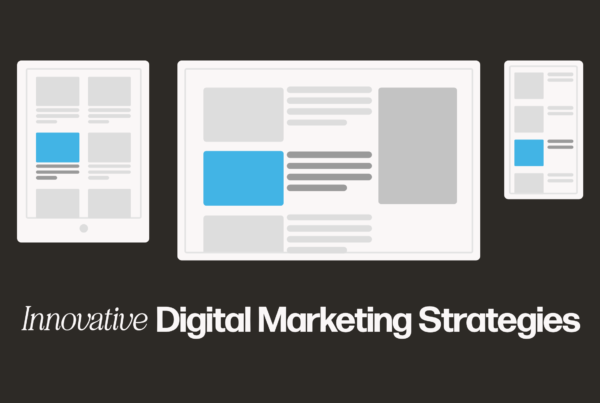Enterprise Resource Planning or ERP Platforms combine all functions of a business into one consolidated system. This allows the user to command and report on their entire operations from a single screen or location.
ERP Systems can greatly increase the efficiency of a business and evidently allow them to increase profits. Therefore, it is extremely important for a business to choose the ERP platform that is right for them.
If you are considering adding an ERP Platform to your business, we have compiled a list of today’s top ERP platforms to choose from.
The Top 10 ERP Platforms for 2023
 1) NetSuite ERP
1) NetSuite ERP
With a powerhouse behind it like NetSuite and Oracle, NetSuite ERP is the most deployed ERP in the world with more than 40,000 companies using it. NetSuite ERP offers a streamlined, scalable solution.
This fully-integrated cloud ERP solution automates key functional areas in a business, like financial management, inventory management and payment processing. Automating both front-office and back-office processes. NetSuite also features extensive integrations with popular platforms like Quickbooks, Sage, and Epicor.
Pros: Integrations, Scalability, Robust Functionality & Customizability
Cons: 3rd Party Integration Bugs, some software can be complex
Price: Base $999/mo, Varies
Best For: Medium-sized Companies

2) Acumatica
Acumatica is a cloud-based ERP platform bringing users a flexible software solution. It pulls all workflows together into a single location to easily view performance.
Its own web-based accounting software is one of the top-rated among enterprise applications and they feature an extensive list of integrated solutions such as with Magento, Shopify, and PayPal.
This ERP platform is highly scalable with no additional fees as a company grows. It’s perfect for a small to mid-sized business looking for growth.
Pros: Flexible, Integrations, Scalability
Cons: Sold through partners, requires developer involvement for customization
Price: Upon request from vendor
Best For: Small to Mid-Sized Companies
3) SYSPRO
A leading ERP solution based in South Africa, SYSPRO services companies across 62 countries. SYSPRO provides an end-to-end, fully integrated business solution specifically designed for manufacturers and distributors.
A key feature is its artificial intelligence and machine learning that allows users to enhance their decision making with comprehensive reporting.
Pros: Comprehensive Reporting, Customizable, Industry-built
Cons: No built-in HR/payroll module, been reports of the system crashing
Price: Upon request from the vendor
Best For: Small to Mid-sized Companies in Manufacturing & Distribution

4) Dynamics 365
Powered by Microsoft, Dynamics 365 is a leading ERP platform. Microsoft uses artificial intelligence to provide data-driven insights to users to enhance decision making.
Dynamics 365 provides a robust list of applications, everything from sales and marketing to operations and finance. It features advanced CRM capabilities.
The pricing for Dynamics 365 varies with each application and includes discounts for bundling apps, which provides users a highly customized account.
Pros: Advanced CRM, Custom Pricing, AI technology
Cons: Limited mobile apps, Not for beginners
Price: Varies, See prices here.
Best For: Mid-sized companies

5) LOCATE
While not technically an ERP system, LOCATE is changing the game for midmarket companies by making enterprise-level features accessible to growing companies without the cost and complexity of an ERP system.
From warehouse basics, such as kitting, barcoding, and tracking, to advanced manufacturing workflows like drop shipping, outsource manufacturing, and wave picking, LOCATE allows mid-level companies an affordable, yet extensive inventory solution.
LOCATE also features top-rated 24/7 in-house support, with 100% customer retention.
Pros: Affordable, customer support, flexible, intuitive, mobile barcoding app,
Cons: Not technically an ERP system, Requires third-party accounting software for financials
Price: $100/user/month, plus a one-time implementation fee.
Best For: Mid-sized, inventory-based companies (5-100 users)

6) SAP ERP
With a customer base of over 170,000 businesses worldwide, SAP ERP is one of the larger erp systems. It offers, cloud-based, on-premise and hybrid models to easily access all business functions in one place.
The system can be quite complicated at first, but the complexity allows for high customization with a variety of integrations and modules.
SAP also offers several ERP packages for small to mid-sized companies, called Sap Business ByDesign and SAP S/4HANA.
Pros: Customizable, All-inclusive, Scalable
Cons: Costly, Complex
Price: Upon request from vendor
Best For: Small & mid-sized companies, Enterprise-level companies
 7) Brightpearl
7) Brightpearl
This all-in-one inventory and order management solution is designed specifically for retailers and wholesalers. Brightpearl is a UK-based solution featuring an extensive list of integrations built to streamline operations.
Brightpearl provides a central hub to manage orders across all sales channels, while automatically updating inventory levels and giving employees real-time customer information.
Brightpearl states on its website that the platform is for merchants trading $1M or above, or expect to reach that within a year. It’s pricing model has two options: stores selling up to 1500 orders per month and those with over 1500 orders per month.
Pros: All-inclusive inventory & order-management, integrations
Cons: Low Customer Support, Complex
Price: Upon request from vendor
Best For: Online and in-store retailers/wholesalers trading over $1M

8) Odoo
Odoo offers the best of both worlds with two versions of it’s ERP program, an open-source community edition, and a licensed enterprise edition.
Odoo features over 20,000 applications, allowing for a highly customizable platform to cover all business functions specific to a company. The apps cover everything from e-commerce and warehouse to project management and accounting.
Pricing starts at $20 per user per month and varies with each application and integration added on. Also, Odoo offers packages at various pricing and features.
Pros: Customizable, flexible pricing, seamless integration
Cons: Requires developer involvement for customization, Low customer support
Price: Varies, See prices here
Best For: Small to enterprise-level companies.

9) Infor ERP
Infor ERP offers a robust suite of applications designed primarily to help manufacturing, distribution and service industries. Infor ERP offers CloudSuites, which are comprehensive suites geared toward each industry.
It has on-premise, cloud and hybrid implementation available, allowing users to pick the most suitable option for their business.
Infor ERP is a versatile ERP solution that offers end-to-end functionality to help boost performance and streamline operations.
Pros: Accuracy, Accounting functionality, Job-tracking, Scalability
Cons: Low functionality with Excel, Low HR functionality, Lack of apps
Price: Upon request from vendor
Best For: Small to mid-sized companies in manufacturing, distribution, or service industries

10) Epicor ERP
Epicor ERP offers a cloud-based solution tailored towards the manufacturing industry. It is known for its functionality with accounting, inventory control and MES.
Epicor ERP is a modular system allowing for users to purchase only the modules they need to make the system highly customized.
Epicor E10 update was recently released with a vast improvements on speed, usability, layout and reporting, making this solution one of the top ERP Systems.
Pros: Project Management, Robust features, Highly customizable
Cons: Some training required, Low customer support, New updates can reset customizations
Price: Starting at $175 per user per month, varies with modular pricing
Best For: Mid-Level Companies with at least $1 Million/yr in manufacturing.
Which ERP Platform is Best for Your Business?
There are many options when it comes to ERP platforms. Some may stand out as front-runners, and each offers unique features that may be more suited for your business.
Choosing the best platform for your business is a vital decision that will impact your entire operation. That’s why is extremely important to know the differences between each ERP Platform in order to choose the best one for your business. We hope this list helps in your search for the best ERP Platform and informs you of the various top platforms.















